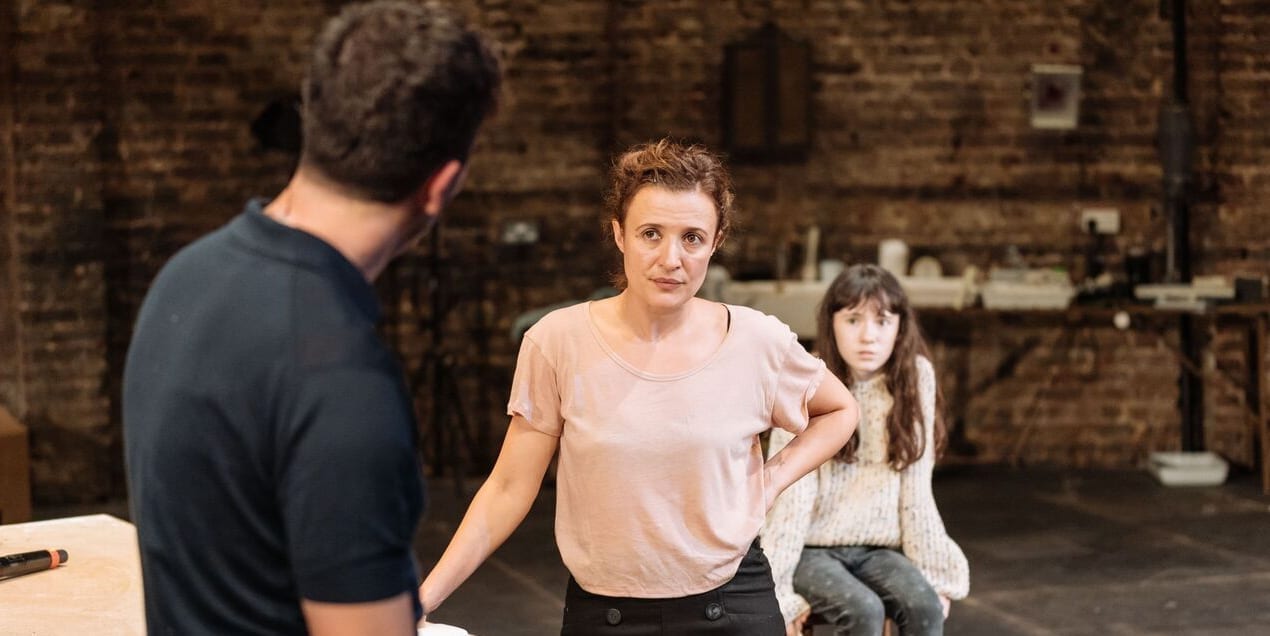Henrik Ibsen wrote this play at the height of his powers in 1884. While not performed that often in comparison with – say – ‘Hedda Gabler’ or ‘A Doll’s House’ it is considered to be one of his best works. One has to ask therefore why it needs to be presented as an ‘adaptation’ when its multi-layered irony and capacity to blend genuine comedy with heart-wrenching tragedy are universally recognized. For sure directors need to reinterpret the classics for a fresh generation, but unless the play is obscurely written or dramaturgically inept, neither of which is the case here, why is there a need for the director to blazon and brandish what is logically explained or implied as the play progresses? Instead of allowing the flower to open naturally, petal by petal, Icke insists on brutally interrupting the action to explain crudely the backstories, motivations and options of the characters as if the audience were at a tutorial on the playwright rather than attending one of his plays.
A speech at the beginning offers the specious explanation that the play is an examination of lying and the need for it; and that there is, in turn, a requirement to make explicit various lies on which it is based, especially that the facts that we can only experience it in translation and that Ibsen himself was less than candid about the real-life events in his own back-story that inspired the play. But these arguments rarely are held against other authors, and in any case, they provide precious little justification for the tricksy interventions and energy-sapping interruptions that deflate the play for much of the overlong first half of the evening.
The second half is better because for most of its length Ibsen’s plotting and dialogue are allowed to work their own alchemy without interference. The confrontation between misplaced idealism and reductive cynicism that is the real heart of the play’s argument is well played out, the family narratives of the Ekdal and Woods families are meticulously and pitilessly unravelled, and the various climaxes are carefully directed with the kind of measured control and careful calculation of delayed effects that Icke can readily summon up when he is minded to do so. There are also some delightful pieces of stagecraft from designer Bunny Christie that carefully populate what starts as a bare rehearsal space into a blend of realism and fantasy that Ibsen would have recognized and approved of.
The actors deliver generally fine performances when the script and stage direction allow them to do so. At the heart of the action from start to finish is Lyndsey Marshal’s Gina, who is a much more forceful presence than in many a production. This performance is a richly detailed portrait of a woman struggling to hold the elements of her family together and to move beyond her troubled past into something much more positive. The narrator and prodigal son, Gregory, is the main reason why she cannot succeed in turning a ‘life-lie’ to good effect, and Kevin Harvey’s performance is an authoritative and daringly unsympathetic portrait of a man whose idealism has curdled into narcissism, thus causing immense harm despite the most high-minded of intentions.
The men in the Ekdal household are well contrasted: Francis Ekdal, as played by Nicholas Farrell, is clearly a man broken by his unfair jail sentence and disgrace, but still carrying echoes of his glory days as a hunter and businessman. Edward Hogg’s James describes a rich spectrum of emotions as his domestic world implodes, but his essential self-centredness, so crucial to the denouement of the play, is present throughout. There is delightfully poignant work from Grace Doherty as the vulnerable daughter, Hedwig, some well contrasted common sense from Andrea Hall as the well-intentioned house-keeper of the Woods family, and shrewd, unflinching drunken truth from Rick Warden, as the disgraced doctor, Relling. Perhaps the only disappointment lies in Nicholas Day’s portrayal of the fading businessman, Charles Woods. This role needs to convey traces of the charisma and acumen that made him such an attractive and previously successful figure, and this performance is too understated to carry that off.
While there are many admirable professional and technical skills on display here the whole is fatally undermined by the director’s desire to improve on Ibsen’s original in unnecessary and unconvincing ways. Icke has rightly won praise for the way in which he has pushed boundaries with ‘The Oresteia’ and ‘Mary Stuart’, but this time he has gone too far and displayed too little confidence in the quality of the original.

